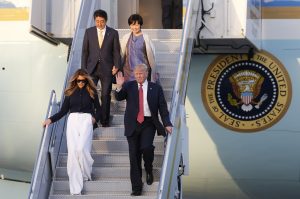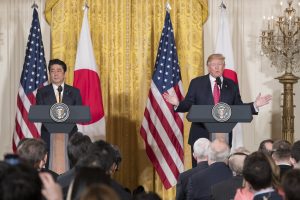
Washington, Feb 10 (EFE).- President Donald Trump said Friday that drafting a new executive order is one of the options he is considering in response to a court ruling blocking his Jan. 27 measure barring refugees and residents from seven mainly Muslim countries from entering the United States.
On Thursday, a three-judge panel of the US 9th Circuit Court of Appeals in San Francisco upheld a restraining order issued on Feb. 3 by a US district judge in Seattle.
Trump’s original order mandated a temporary pause in admission of refugees, a 90-day prohibition on entry by residents of Iraq, Syria, Sudan, Iran, Somalia, Libya, and Yemen, and an indefinite suspension of admission of Syrian refugees.
The president said Thursday that the administration would appeal the ruling by the 9th Circuit panel, though aides subsequently suggested the White House would adopt a different approach.
“We will win that battle. The unfortunate part is that it takes time statutorily, but we will win that battle. We also have a lot of other options, including just filing a brand new order,” Trump told reporters Friday aboard Air Force One.

When a journalist asked if issuing a new executive order would be the best option, the president replied: “It very well could be. We need speed for reasons of security, so it very well could be.”
Trump had addressed the issue earlier Friday during a joint press conference with visiting Japanese Prime Minister Shinzo Abe.
“We’ll be doing something very rapidly having to do with additional security for our country. You’ll be seeing that sometime next week,” the president said.
The administration can ask for a review of the panel’s decision by the full 9th Circuit, or it can seek intervention by the US Supreme Court, which is still one short of its normal complement of nine members, creating the possibility of a 4-4 deadlock.
A tie in the Supreme Court would allow the appellate ruling to stand.
The White House says that the executive order was meant to provide time to develop a procedure for “extreme vetting” of Muslims seeking to enter the United States, something Trump proposed during the presidential campaign after his initial call for an outright Muslim ban drew criticism from across the political spectrum.
Roughly 1,000 State Department career employees have signed a memo denouncing the executive order.
The Cato Institute, a libertarian think-tank in Washington, has pointed out that since at least 1975, no terrorist attacks have been carried out on US soil by nationals of the seven nations affected by the visa suspension.
